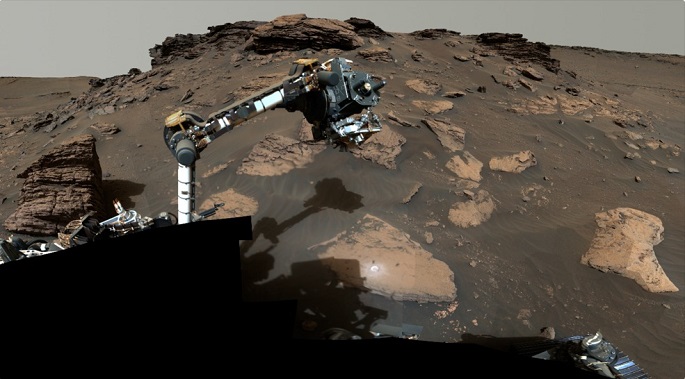
Los Angeles: NASA's Perseverance rover has started its second science campaign on Mars, collecting rock-core samples in an area long considered by scientists to be a top prospect for finding signs of ancient microbial life on the Red Planet, NASA (National Aeronautics and Space Administration) said on Thursday.
The mission of the Mars 2020 Perseverance rover focuses on surface-based studies of the Martian environment, seeking preserved signs of biosignatures in rock samples that formed in ancient Martian environments with conditions that might have been favorable to microbial life.
The rover has collected four samples from an ancient river delta in the Red Planet's Jezero Crater since July 7, bringing the total count of scientifically compelling rock samples to 12, according to NASA.
"We picked the Jezero Crater for Perseverance to explore because we thought it had the best chance of providing scientifically excellent samples -- and now we know we sent the rover to the right location," said Thomas Zurbuchen, NASA's associate administrator for science in Washington.
"These first two science campaigns have yielded an amazing diversity of samples to bring back to Earth by the Mars Sample Return campaign," he said. A key objective for Perseverance's mission on Mars is astrobiology, including caching samples that may contain signs of ancient microbial life.
Read also: Technology: NASA telescope captures Tarantula Nebula
The rover will characterize the planet's geology and past climate, pave the way for human exploration of the Red Planet, and be the first mission to collect and cache Martian rock and regolith, according to NASA.
Subsequent NASA missions would send spacecraft to Mars to collect these sealed samples from the surface and return them to Earth for in-depth analysis. (with UNI inputs)







